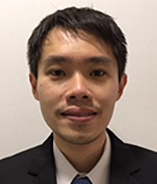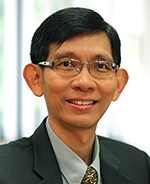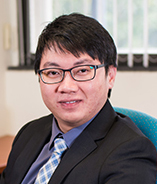COURSE OBJECTIVES
In light of the COVID-19 pandemic, the Science Discovery: The COVID-19 Pandemic programme is designed to enhance students’ understanding about the current phase of the pandemic through informative lecture and interactive workshops by the university faculty and staff..
PROGRAMME HIGHLIGHTS
- Cell Molecular Biology & Research
The lectures focus on establishing the foundation knowledge of cell molecular biology and research (e.g. ethical considerations).
- Nanotechnology
The lecture focuses on Nano-systems. Through the sharing, participants can better appreciate the significance of Nanoscience and applications of Nanotechnology.
- Mathematical Modelling of Epidemics Workshop
Winning a fight against an epidemic requires a good grasp of what might happen as the disease progresses in the community. How many more infections do we expect after “circuit breakers” and “lockdowns” are imposed? When would it be safe again to go about our normal routine? How can Mathematics help us make reasonable decisions about the situation?
Using some concepts and ideas from just high school Mathematics, participants can learn how to simulate the different scenarios and gain insights into epidemic spread and control. They would also learn how to interpret and process available health data in light of the skills and knowledge they have gained during this workshop.
- Bioinformatics
How do scientists trace an organism back to its ancestors? How sure are scientists when they discover a new species? How was the first COVID-19 genome determined? With modernization and more advanced machinery available for Biology research, what are the tools that we can use to help us answer the questions we have about our world, and deal with the huge chunks of data coming in everyday from labs and experiments?
Bioinformatics has become an integral part of modern life sciences, and it has become more relevant now than ever in the research and analysis process. Basing off concepts learnt in secondary school and high school, participants will learn how to navigate and search for information on web-based databases, access and interpret the data on their own to learn more about DNA, RNA and proteins. They will also learn how to create a phylogeny tree to establish the evolutionary relationships between different organisms, as well as explore the role that bioinformatics plays in the society today, with COVID-19 as the subject of follow-up activities.
- Antibodies Workshop
Workshop participants will take part in hands-on activities to understand the functions of antigens and antibodies in our blood and the significance of ABO blood groups in blood transfusions. After, participants will engage in a short discussion about the principles and use of rapid test kits in our fight against COVID-19.
Who Should Attend
Pre-University students, high school Grade 10 - 12 students who are interested in exploring STEM education in university.
Pre-Requisites
This programme welcomes all students who has an interest in understanding Epidemiology.
• Some basic high school knowledge of Biology and Mathematics suffice, but are not necessary.
• No prior programming knowledge is required.
Programme Schedule
For individuals interested in NUS SCALE Youth programmes, please click here to enquire.
For schools/companies interested in customised and/or group bookings, please click here.
Mode of Delivery
On-campus Programme: 15 hours of seminars, workshops, and a final project presentation.
Mode of Assessment
Students will be assessed via a variety of assignments and assessments:
- Individual assignments
- Group project
COURSE INSTRUCTORS
Below are the faculty members who have developed the course, and taught the programme in the past (names are arranged in alphabetical order):

Dr Koh Ming Joo
Assistant Professor
Department of Chemistry, Faculty of Science
Assistant Professor Koh Ming Joo is the first President's Assistant Professor who joined the Department. He graduated from Nanyang Technological University (Chemistry, First Class Hons) in 2012 before heading to Boston College for his PhD studies, under the supervision of eminent organometallic chemists Prof Amir Hoveyda and Prof Richard Schrock (Nobel Prize '05).
A recipient of several graduate awards, Assistant Professor Koh has co-authored several research articles in Nature and Science as a young researcher. He was one of the recipients of the NUS Inauguration Grant in 2019. At NUS Chemistry, his research has been published in reputable scientific journals, including Nature Catalysis, Chem and Journal of the American Chemical Society. Assistant Professor Koh’s current research focuses on developing sustainable and enabling catalytic solutions that address critical and unresolved problems in chemical synthesis by homogeneous base metal catalysis, heterogeneous single-atom catalysis and radical chemistry.
Prof Li Hao, Amy
Assistant Professor
Department of Chemistry, Faculty of Science
Assistant Professor Li Hao, Amy obtained her Bachelor degree in Biochemistry and Biology from the University of Wisconsin-Madison under the National Science Scholarship in 2008. She continued her PhD in Chemical and Systems Biology at Stanford University. She did her post-doctoral studies in the Molecular Engineering Laboratory, A*STAR Singapore under the supervision of the late Nobel Laureate Professor Sydney Brenner.
Assistant Professor Li’s research focuses on deciphering at a molecular level how microbial enzymes and their associated molecules structure the human environments they reside. In particular, she aims to define the functions of the microbial community in order to link human microbiome-associated diseases to targetable pathways and mechanisms. Her research has been published in reputable scientific journals, including Nature and Journal of the American Chemical Society.

Dr Seow Teck Keong
Associate Professor
Department of Biological Sciences, Faculty of Science
Prof Seow is an Associate Professor at the Department of Biological Sciences and the College of Alice and Peter Tan. He has been coordinating and teaching large classes with enrolments of 350 to 800 students per semester since 2003. The challenge of effectively managing the teaching and learning of not only a large number but also a large diversity of students every semester had motivated Prof Seow to explore the use of technology in education and investigate the impact of the utilisation of technology on learning.
He seeks to interact with as many of his students as possible and get them enthused about the scientific study of life. This desire of his to leave a lasting and positive impact on the lives of his students is also seen in the many long-lasting friendships forged with the residents of King Edward VII Hall during his many years of service as a Resident Fellow there.Since his joint-appointment at the College of Alice and Peter Tan from August 2014, he has been thinking about the value of residential living on learning.
Dr Sow Chorng Haur
Professor
Department of Physics, Faculty of Science
Prof Sow received a B.Sc. Degree (1st Class) in Physics from the National University of Singapore (NUS) in 1991.After spending two more years in NUS for research, he received a M.Sc. degree in Physics. He then went on to The University of Chicago and completed his PhD degree in 1998. During the period in 1999-2000, he worked as a postdoctoral fellow at Bell Laboratory, Lucent Technologies. He returned and joined the Department of Physics, NUS in 2001. He is now a Professor, Head of Department with the Department of Physics. He has authored and co-authored many papers in the field of nanoscience and nanomaterials.

Dr Tan Zhi Kuang
Assistant Professor
Department of Chemistry, Faculty of Science
Assistant Professor Tan Zhi Kuang studied Chemistry and Technology Entrepreneurship at the National University of Singapore (NUS), and received his Bachelor of Science (Chemistry) with a first class Honours in 2010. He earned his PhD in Physics at the University of Cambridge through the support of the prestigious Singapore National Research Foundation (NRF) scholarship.
In 2014, he invented the first perovskite-based light-emitting diode, which possesses remarkable color performance and efficiencies, and has since attracted significant academic and commercial interest. His research has been published in reputable scientific journals, including Nature Nanotechnology, Nature Photonics and Advanced Materials, and has received an aggregate of 5,000 academic citations. His research inventions have also led to multiple licensed patents and two deep-tech startup companies in the advanced display technologies domain. His group aims to investigate the rich photo-physics of perovskite semiconductors and quantum dots, and seeks to develop advanced photonic devices for color displays and wearable electronics applications.
-
CERTIFICATE OF COMPLETION
Successful participants who fulfill all program requirements, including meeting the minimum attendance and passing the assessment, will be awarded an e-Certificate of Completion and Assessment Report issued by NUS SCALE.
Certificate of Completion
A sample of the Certificate of Completion
Assessment Report
A sample of the Assessment Report.
-
COMMENDATION LETTER
Participants from the project team with the highest score for the group project will also receive a commendation letter.
Commendation Letter
A sample of the Commendation Letter.
-
SPEAK TO US
For enquiries, contact us through the following forms:
-
For individuals interested in NUS SCALE Youth programmes, please
click here to enquire.
-
For schools/companies interested in customised and/or group bookings, please
click here.
|